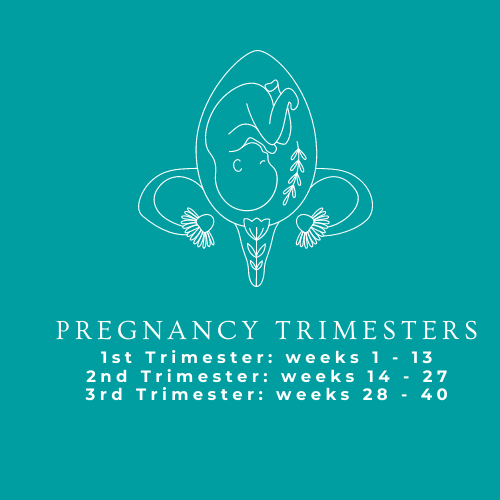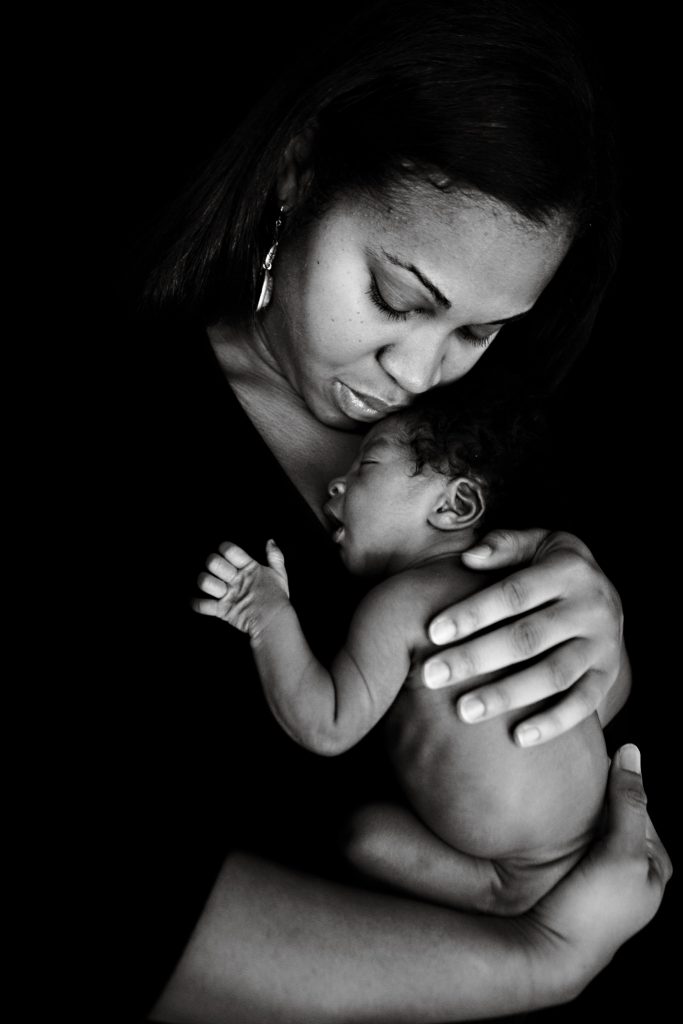The Trimesters
Expectant parents need only to google “pregnancy trimesters” and in two seconds find themselves inundated with everything from blog posts to detailed infographics chronicling the baby’s growth and development over the next 10 months of gestation. Need to know how big baby is at 24 weeks, the ins and outs of the oral glucose tolerance test, or the signs of labor – the internet has answers. Pregnant mommies see the Obstetrician 12+ times over the course pregnancy to ensure that baby is healthy and growing as expected and to reduce the risk of obstetrical complications for both mom and baby.

Everyone oohs and ahhs over big, beautiful bellies. Family and friends plan baby showers and buy adorable baby clothes, monogrammed bibs and blankets, diapers, bottles, and baby gear. For many it’s a wonderful time as expectant moms bask in their pregnancy glow.
4th Trimester: birth to 12 weeks postpartum
Next baby arrives with all the pomp and circumstance properly associated with his or her grand entrance into a brave, new world, an occasion marked by joy, tears, fears, and utter delight. Then, armed with a laundry list of dos and don’ts, swaddling practice, feeding instructions, and a few appointments for mom and baby, new parents are whisked away from the safety of the hospital into the throes of parenting uncertainty.

Even after delivery, moms have a measly 6-week postpartum checkup followed by the usual annual exam while babies see the pediatrician at least seven appointments during their first year of life – which begs the question, who’s checking on mom?
The world-renowned pediatrician Dr. Harvey Karp coined the term “the fourth trimester” to describe the first three months of baby’s life outside the womb; a time of big transition as baby is learning to adjust to his or her new normal. But I propose that the fourth trimester should really be focused more on mama and less about baby. Everyone from mom, dad/partner, pediatrician, other caregivers, family, and friends are ALL checking on baby. Yes, new moms get meals and the hands of those who wish to hold and love on the new bundle of joy; but how often are we asking about mom’s emotional health and well-being?
Between demanding feeding schedules, frequent diaper changes, and erratic sleep coupled with hormone fluctuations, almost 80% of moms experience the baby blues within the first few days after delivery but resolve within the first two weeks. Signs of the baby blues include mood swings, crying spells, irritability, feeling overwhelmed, fatigue, and poor sleep. Postpartum depression or PPD is common as well. According to the Centers for Disease Control and Prevention, 1 in 8 women in the United States experience symptoms of postpartum depression those these estimates only include women who had a live birth and not those women who may have miscarried or had a still birth, making these numbers much higher. Symptoms of PPD include severe mood swings; feelings of sadness, worry, or irritability; loss of interest in activities; difficulty concentrating; changes in sleep and appetite; finding it difficult to bond with your baby; feelings of hopelessness and worthlessness; isolation and social withdrawal; excessive or inappropriate guilt; thoughts of harming yourself; or thoughts of harming your baby.
Protecting Mom
With such staggering statistics, we clearly need to put more emphasis on supporting moms and especially during the first few months post-delivery. Moms need more than a singular postpartum follow up appt at 6 weeks. Moms need more support for breastfeeding. The popular adage, Breast is best, is wonderful but inadvertently saddles many moms with tremendous guilt when they are unable to successfully breastfeed. Fed is best is the new saying and champions healthy babies and healthy moms without infant feeding shaming. Lactation consultants and newborn care consultants should be standard practice immediately implemented into the follow up care for moms rather than something else exhausted mamas must find through what can feel like an all-out search and rescue mission. Programs that prioritize good maternal mental health at the outset should be widely available for every mom irrespective of her insurance status.

Moms need community. Moms need resources. Moms need help. Happy, healthy moms raise happy, healthy kids, and we need to do a much better job at making sure our mamas are both by any and all means necessary.

